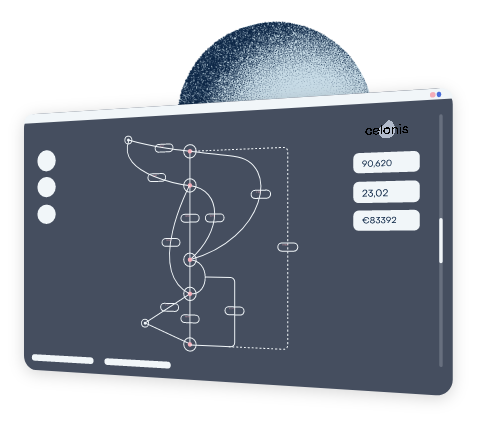


Opportunity Management
Identify, prioritize, and pursue potential sales to drive revenue growth. Optimise sales processes for a higher close rates.
Advanced Marketing Intelligence
Shorten sales cycle
Optimise resources
Frictionless customer experience
Process mining solutions for opportunity management involve using data-driven insights to identify high-value sales opportunities and optimize the sales process for increased efficiency and effectiveness. Use the streamlined processes to create dynamic marketing strategies and swiftly adjust to new trends. Ultimately, these solutions can improve sales performance and give businesses a competitive edge.

Challenges
One of the main challenges in opportunity management is identifying the most promising sales leads from a large pool of potential opportunities. This requires effective data analysis and segmentation to prioritize leads based on their potential value. Another challenge is ensuring consistent and effective communication with leads throughout the sales process, particularly in cases where multiple team members are involved in the sales process. There is also a risk of losing track of leads or missing out on potential opportunities if the sales process is not well-organized or efficient. Finally, the competitive landscape can present challenges for opportunity management, particularly in crowded markets where multiple businesses may be targeting the same leads.
Our solutions
Our solutions
Advanced marketing Intelligence
Process mining solutions analyse data from various sources to help businesses understand their customers’ behaviour and preferences. By analysing customer interactions, purchase histories, and other data, businesses can identify the most promising sales opportunities and prioritize leads accordingly.
Automate workflows
Automated workflows can streamline routine tasks and free up sales teams to focus on high-value opportunities, such as engaging with potential customers and closing deals. Automated workflows can also help ensure that routine tasks are completed quickly and accurately, improving overall sales efficiency.
Improve sales performance
Process mining solutions improves communication and collaboration among sales teams. By providing real-time data and insights, these solutions can help sales teams stay informed and collaborate more effectively throughout the sales process. This ensures that leads receive consistent and effective engagement throughout the sales process, improving overall sales performance.
Identify trends
Gain a better understanding of your business transactions by acquiring a comprehensive overview of both successful and unsuccessful deals. This information can assist in identifying the process flows that lead to a greater success rate. Moreover, examine unsuccessful deals in greater depth to uncover the reasons for their failure.






